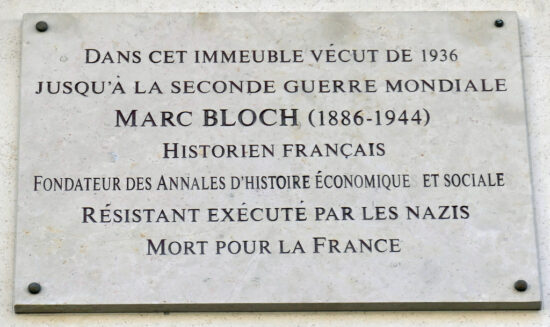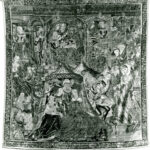Marc Bloch was a renowned French historian, born on July 6, 1886, in Lyon, France. He is widely regarded as one of the most influential figures in the field of medieval history and historiography. Bloch’s work not only made significant contributions to our understanding of the Middle Ages but also shaped the development of historical methodology. His extensive research, insightful analysis, and innovative approach have solidified his legacy as a pioneering historian.
Bloch came from an academic background. His father, Gustave Bloch, was a professor of ancient history at the University of Lyon, and his mother, Sarah Ebstein, was an accomplished pianist. This intellectual environment fostered Bloch’s early interest in scholarship and learning. He excelled academically and entered the prestigious École Normale Supérieure in Paris in 1904. During his time there, he studied history and embraced the vibrant intellectual atmosphere of the city.
After completing his studies, Bloch embarked on a successful academic career. He taught at various institutions, including the University of Strasbourg and the University of Paris, where he eventually became a professor of medieval history. Bloch’s teaching style was known for its clarity, rigor, and emphasis on primary sources. He encouraged his students to delve into original documents and artifacts, promoting a hands-on approach to historical research.
One of Bloch’s most significant contributions to medieval history was his groundbreaking work on feudalism. In his seminal book, “La Société Féodale” (Feudal Society), published in 1939, Bloch challenged the prevailing notions of feudalism as a static and uniform system. Instead, he presented feudalism as a complex and dynamic social structure, influenced by political, economic, and cultural factors. Bloch’s analysis shed new light on the intricate relationships between lords and vassals, the role of land tenure, and the development of medieval institutions.
Apart from his research, Bloch played an active role in French intellectual life. He co-founded the influential journal “Annales d’histoire économique et sociale” (Annals of Economic and Social History) in 1929. The journal aimed to promote a new approach to history, known as the Annales School, which emphasized interdisciplinary research, long-term historical perspectives, and the study of societal structures and processes.
Bloch’s life took a dramatic turn during World War II when he joined the French Resistance. As a Jew and an intellectual, he was deeply committed to the fight against fascism and the German occupation of France. In 1943, Bloch was captured by the Gestapo and subjected to torture. Despite enduring immense suffering, he refused to reveal any information about his comrades or the Resistance network. Tragically, Marc Bloch was executed on June 16, 1944, just a few days before the liberation of Paris. His death was a tremendous loss to the world of history and academia.
Throughout his career, Bloch emphasized the importance of the historian’s craft. He believed that a historian should approach their subject with rigorous analysis, critical thinking, and a comprehensive understanding of context. Bloch’s commitment to methodological rigor led him to develop innovative techniques, such as prosopography (the study of individuals in collective groups) and the use of statistical data in historical analysis.
Bloch’s influence extended far beyond his own lifetime. His ideas and methodologies continue to shape the field of history and inspire generations of historians. His emphasis on interdisciplinary research and the integration of diverse sources, including archaeological evidence, economic data, and literary works, remains highly influential.
In recognition of his outstanding contributions to historical scholarship, Marc Bloch has received numerous posthumous honors. In 1946, he was awarded the Croix de Guerre, a military decoration for his bravery during the war. Additionally, the French government established the Marc Bloch Foundation in 1961 to promote historical research and education. Bloch’s enduring legacy serves as a testament to his remarkable intellect, unwavering commitment to truth, and profound impact on the study of history.
Sources
Marc Bloch | French Historian & WWI Soldier | Britannica
La société féodale by Marc Bloch | Goodreads
Marc Bloch in the French Resistance | History Workshop Journal | Oxford Academic (oup.com)







